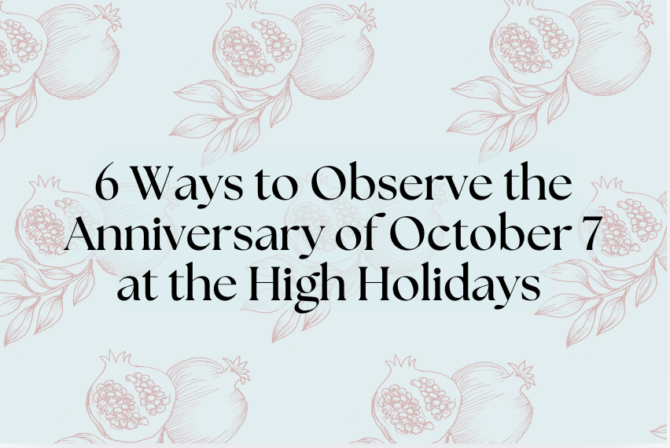I was always too embarrassed to admit I was an orphan. As a teenager, it would lead to awkward silences and even in my 20s, while living abroad, I tried to avoid conversations that led to any queries about my parents. I am sure people suspected that I was a neglected child taken away by social services and then abandoned by a cruel foster family. In fact, my mother simply dropped dead from a heart attack, aged 42, and my father, ever in thrall to my mother, copied her a few years later. I was 19 when my mother died and 31 when my father died.
I dreaded the Yizkor prayer during the High Holyday services, when parented people would glance at me with pity as they left the synagogue for the duration of the memorial prayer. Eventually I found a husband who also had no parents, and we stood together as orphans under the chuppah. But soon I could no longer claim orphanhood as my sole identifying characteristic—we had children and settled into a community with many young families.
READ: The Jewish Take on Donating Organs & Why My Dad’s Death Is a Gift
Well-intentioned friends were quick to suggest that we were better off without interfering parents who would inevitably criticize my parenting style. They reminded me I was lucky I did not have to go to my mother-in-law’s Passover seder. I never replied with words—rather I smiled sweetly, held back tears, and seethed with rage. I wanted a witty, sarcastic reply at the ready, but I was too stunned to think clearly.
Twenty years later, I now find myself apologizing for not having aging parents to worry about, not having an irritating mother-in-law to take to the doctor, a father losing his memory walking around the neighborhood in his pajamas, a mother crippled by arthritis, a father-in-law with a cancerous prostrate.
When I was a motherless daughter, I couldn’t empathize with my friends who complained about their mothers. I just wanted them to be quiet. But now, as my friends look to me for some empathy, I fear I don’t have enough to give. They say to me, “You know how it feels to look after old parents,” and I have to say, “Actually, I don’t know how it feels—I don’t remember how it feels.”
READ: How a Caterpillar Allowed Me to Accept My Father’s Death
Denied the opportunity to look after my parents in their old age, I also find myself angry that I have been denied this responsibility—a responsibility that would allow me to be the dutiful daughter I always wanted to be. It would have given me the chance to huddle and share with other women their frustrations and secrets about their parents. There are swathes of intimate conversation I cannot share with my friends, but I want to tell them that they cannot imagine the inevitability of their loss and the looming vacuum of time that awaits them when their parents die.
Aging parents protect you from an early death—while I live with a very strong feeling that death is just around the corner, if you’ve got an 80-year-old parent, it’s perfectly reasonable to be focused on their death and not your own. I often think of the young children orphaned by tsunamis and earthquakes—natural disasters disrupting natural family life—and wonder about a generation of children without elders, a generation of young men and women who will parent their own children without their elders to guide them.
While my friends are caught between motherhood and parent care, I don’t even know what to expect when it comes to having aging parents. How will my children learn to look after me when they’re older if they have never seen me look after anyone else? Most children practice grieving on their grandparents—they learn the etiquette from a dignified burial of an elderly relative, and it is a relatively safe experience that they can share with their friends. My children, now aged 21, 19, and 17, are in for quite a shock.
READ: Mayim Bialik: 4 Things I Learned While Mourning My Dad in Israel
Children are expected to reach their developmental milestones in order to grow healthily—what about adults? Surely one of our developmental milestones should be looking after our elderly parents? What are you meant to do when you are prevented from being the devoted daughter or the helpful daughter-in-law? Sometimes, not having to look after my parents makes me sad. I won’t have the opportunity to tenderly look after them, I won’t have the chance to show my appreciation for everything they did for me, and I won’t be able to arrange their funerals.
I have no aching responsibilities, no one waiting for me to phone them everyday, no complex medical services to negotiate, no resentment at having to put my career on hold to look after them, no forced Sunday lunch visits, no extra payments for nursing care, and no arguments with my spouse about our parents’ care.
And herein lies my guilty little secret: although I am sad just a little bit every day, there are times when being parent-free feels just great.







